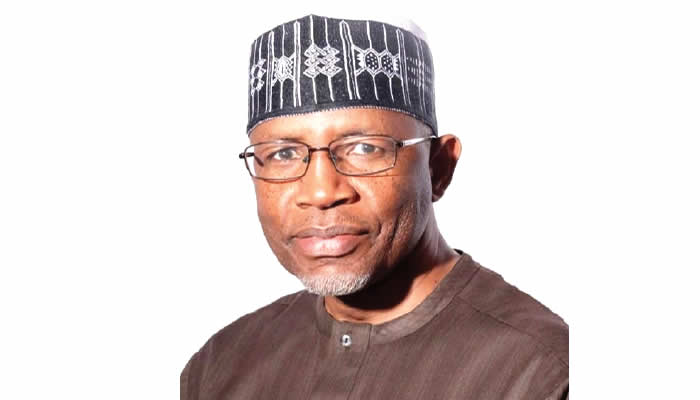
While efforts are on to integrate the West African region’s capital markets to boost depth and liquidity, the growing infrastructure deficit in Nigeria and the sub-region will put some pressure on them just when they are most needed. Oluwakemi Abimbola reports
The World Bank has said that Nigeria needs about $3tn to close its infrastructure deficit with funding requirements estimated at between $100 and $150bn per annum for at least the next 10 years.
During his keynote address at the annual banking and finance conference in Abuja in September, World Bank Country Director for Nigeria, Mr Shubham Chaudhuri, lamented that public spending in the country is among the lowest globally.
He said, “Nigeria’s government expenditures are the lowest globally. Public spending by the Nigerian government, both the federal and subnational levels have been very low.”
Chaudhuri went on to project that “At the current rate of capital spending, it would take 300 years to close Nigeria’s infrastructure gap.”
In a presentation at the third West Africa Capital Market Conference held in Lagos, the Managing Director/ Chief Economist, Analysts Data Services and Resources, Dr Afolabi Olowookere, made a case for why the infrastructure gaps need to be filled as soon as possible.
He posited that Nigeria and the West African sub-region require a robust infrastructure development necessitated by a high population of over 400 million people, increasing demand from Asia for natural resources and minerals, the need for port and rail infrastructure to move people and commodities around as well as a need for digital connectivity.
Olowookere said “In most economic and finance literature, infrastructure has been established as something that is fundamental for growth and development. For many reasons, it increases productivity, they also facilitate trade, reduce the cost of production which is very important in terms of what you realise in terms of returns on capital. They are drivers of progress and productivity. One major aspect that most African countries and more so in the sub-region are lacking is productivity. We can say that Nigeria has the largest Gross Domestic Product in Africa but by the time you look at per capita GDP, it is usually very low.
In the past, the Nigerian government and others in the West African sub-region had funded infrastructure from the budget but with an increasing population and geopolitical tensions, it is highly unlikely that they would be able to sustain it.
“At best Nigeria will only be able to dedicate 30 per cent of its annual budget to capital expenditure and by the time you compare all the states and local governments, all of them will do about 35 to 40 per cent and that is in the budget. By the time you look at the actual expenditure, it is going to be less than that,” he pointed out.
As it stands, the ability of the Nigerian government to finance infrastructure is in doubt in light of its high debt servicing costs. According to the latest Medium Term Expenditure Framework and Fiscal Strategy Paper 2024-2026 released by the Federal Government, debt servicing will gulp N29.92tn in three years, which will make capital financing hard if not impossible.
Capital flight
Geopolitical tensions as well as global central banks hiking rates in a bid to fight stubborn inflation have also resulted in some projections that Africa and other frontier markets will witness capital flight.
Head of Research, Vetiva Capital, Luke Ofojebe, during a review of the capital markets in the West African sub-region, at the company’s 2023 African Economic and Capital Markets Conference themed ‘From geopolitics to geoeconomics: Navigating uncertainties across Africa’ stated the hike in the interest rate by US Federal Reserve will drive capital flight from the subregion and continent.
He said, “We are now seeing that US Federal Reserve will continue its rate hike into the first half of 2024, so we will see capital flight. Currency weakness is still a major concern. We will see a downward trend till the first half of the 2024 until a dovish move from the US Fed in the second half of 2024, then we may begin to see an appreciation.”
In the fixed-income market, Ofojebe said that African governments would be borrowing more from the local market seeing that foreign investors will have no interest in Eurobonds by African sovereigns due to geopolitical and geoeconomic reasons.
“We expect more participation from the government in the local debt markets because foreign investors are not interested in any Eurobonds African sovereigns may raise, so the governments will fall back on the local FI market.”
Infrastructure deficit equals opportunities
Meanwhile, with the huge infrastructure need also comes opportunities. Many countries have sought assistance, in terms of development assistance; and borrowing globally and some have used private-public partnerships to finance their infrastructure need.
China has also become a major stakeholder on the continent financing train systems, and road networks. In addition to China, there are local funds and capital that are trying to take advantage of the development.
According to the Centre for Global Development, Chinese Development Banks provided about $23bn for African infrastructure between 2007 and 2020 compared to $9.1bn that was provided by every other development banks around the world.
Offering solutions, Dr Olowookere said that Nigeria and other African countries can raise funds through the capital market by creating new asset classes and portfolio diversification.
The latest MTEF data shows that the national government plans to borrow N7.81tn in 2024 with N6.04tn from domestic lenders and N1.77tn from foreign creditors. By 2025, the Federal Government plans to borrow N8.54tn, which is also less than the N10.62tn targeted for the same year in the previous MTEF/FSP.
This projection aligns with the opinion of Vice President Kashim Shettima, who said that the country’s $3tn infrastructure investment deficit can be better funded by local stakeholders rather than foreign borrowings.
Speaking at the WACMaC themed, ‘Infrastructural Deficit and Sustainable Financing in an Integrated West African Capital Market,’ Shettima who was represented by Dr Tope Fasua, the Special Adviser to the President on Economic Affairs in the Office of the Vice President, said, that infrastructural deficit in the West African sub-region means that the capital markets have to improve their operations.
He said, “The centrality of capital markets to Nigeria’s development trajectory, especially to the evolution of our corporate sector, our industries and perhaps most importantly, our infrastructural development cannot be overemphasised. Just two days ago, on Monday, 23rd of October, 2023 at the opening of the 29th Annual Conference of the Nigerian Economic Summit, His Excellency President Bola Ahmed Tinubu sought the cooperation and intervention of Nigeria’s private sector – and specifically the capital market – toward the funding of Nigeria’s $3tn infrastructure gap, which he said should not require 300 years to cover – as propounded in some texts – but 10 years. If this is so for Nigeria, it presupposes that the entire region has similar – or perhaps larger – infrastructural deficits waiting to be filled. They are better filled from inside, not through foreign borrowing alone.”
However, the West African region’s capital markets are fragmented and lack depth and liquidity which has birthed the West African Capital Markets Integration Project. The integration project is in Phase II.
In his address, the governor of Lagos State, Babajide Sanwo-Olu, expressed concern that across the sub-region, modern infrastructure such as roads, rails, ports, fibre-optics, housing, power and several others are hugely inadequate.
“These perennial inadequacies have hindered the economic growth of our nations and its people. It behooves us to deliberate on innovative financial strategies that can bridge the infrastructure gap, enhancing the lives of our citizens and propelling our economies to greater heights. While Governments, like ours, continue to make efforts at plugging the huge infrastructure deficits, we cannot do it alone. The private sector must be fully involved and invested.”
Speaking on innovation and the readiness of the capital market, the VP said that the job of the capital market in Nigeria is therefore cut out for it in order to be able to finance the infrastructure needs of the country.
Parting shot
Challenging the stakeholders, Shettima said that engaging the youths was key.
“Meet young West Africans online. Create Apps that they can relate to. Use blockchains where necessary, to show transparency and to give them some of the control that they seek. Show them value, solidity, history, structure, resilience, and sustainability, so that rather than invest in legless risky ventures where they see their monies disappear on daily basis, they will learn the beauty of capital market investment, and will through your efforts, invest in the companies and instruments that will guarantee the sustainable future of West Africa, the very last bastion of development and opportunities in the world.
“I want to say that we’ve only just begun. We have seen the surge of cryptocurrencies and other arcane instruments and trades in West Africa and not all the stories had happy endings.
“We must understand that though savings may be shrinking, and economic crises have caused a shrinkage in investible funds, still they are there and only the truly innovative will access them. The times call for innovation, ingenuity, thinking ahead and at the speed of light, inventiveness, diversification of product offerings, continuous education and interactions with the public at every platform, on and offline.”





